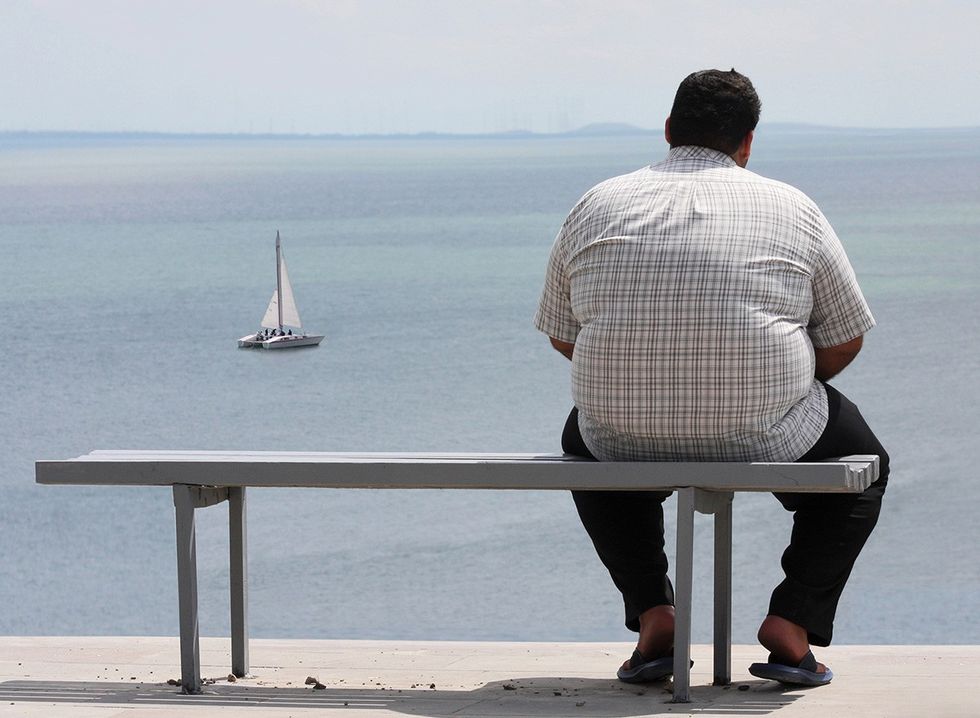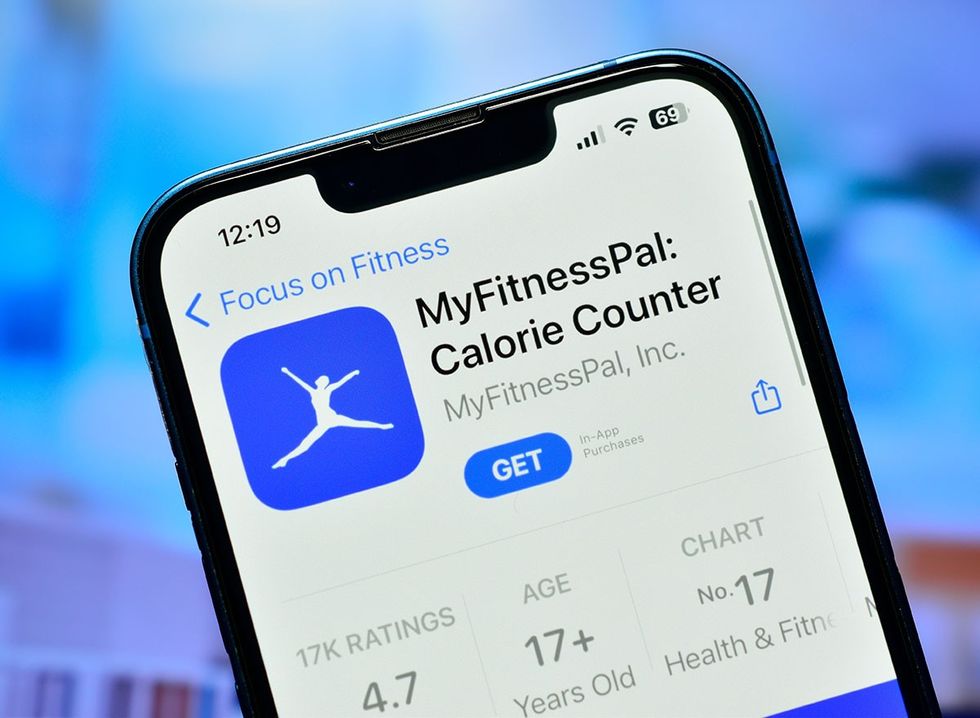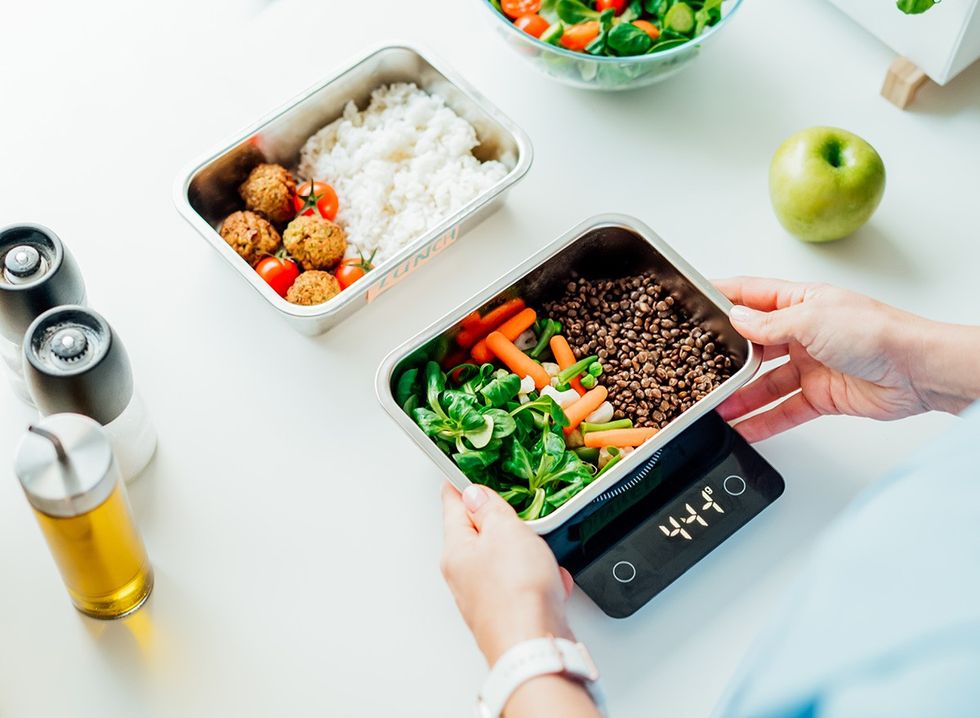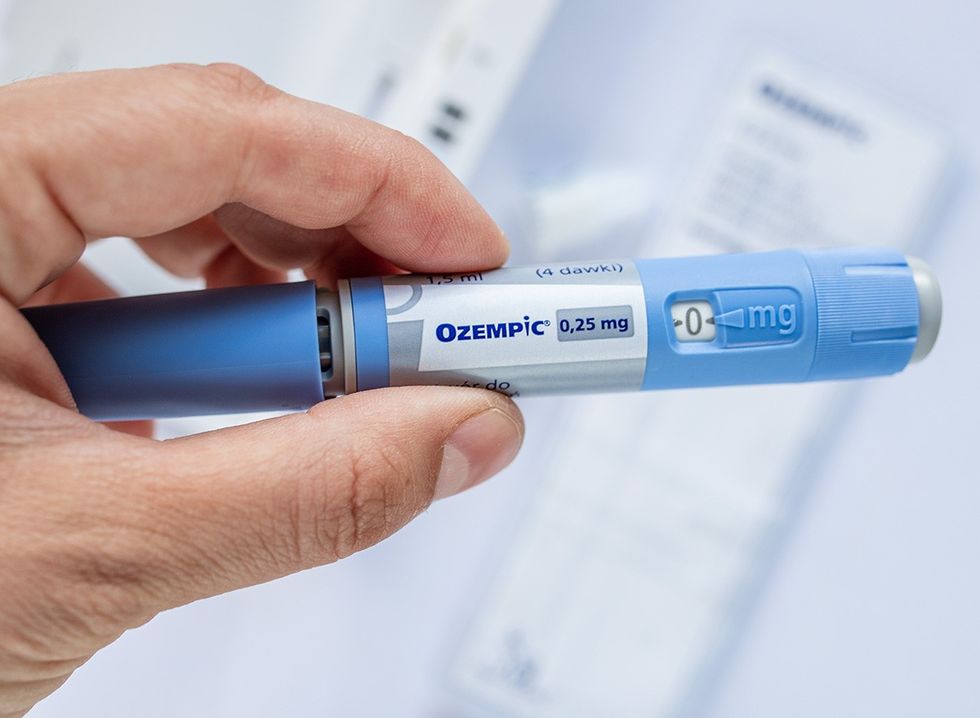Weight loss can be complicated and frustrating enough when it’s actually working—but what if you’re (seemingly) doing everything right and the scales refuse to budge? "Both medical and surgical-assisted weight loss programs have proven to be very successful, but the key element is you," Matthew R. Pittman, MD, tells Northwestern Medicine. "Committing fully to the behavioral and lifestyle changes required is essential for long-term weight loss success." Here are 15 reasons weight loss might not be happening for you.
Gut Microbiome Issues

Is your gut microbiome undermining your weight loss? It’s possible. “The advice at this time is to focus on foods and behaviors that contribute to overall gut health,” Elizabeth Ko, MD, and Eve Glazier, MD, tell UCLA Health. “That means eating fresh fruit, vegetables, leafy greens and naturally fermented foods; avoiding stress; sleeping enough; and getting regular exercise. It’s not the weight loss magic many long for, but it will contribute to a healthy gut and better overall health.”
Unhealthy Diet

A diet heavy in sugar and ultra processed junk food is bad for weight loss and terrible for your health. “The power of regular exercise to counter the negative effects of poor eating habits is limited, especially when looked at over the long term,” Laura Goldberg, MD, tells University Hospitals. “There’s not one diet that fits all. But in general, people should strive to consume as many whole foods as they can. Whole foods are minimally processed – they include vegetables, whole grains, nuts, seeds, beans, lentils, milk, unprocessed meats and fish.”
RELATED: This Plan Is How to Lose 5 Percent Body Fat In 2 Weeks
Poor Sleep

Not getting enough sleep—and getting poor quality sleep—can make weight loss difficult. “When it comes to diabetes and obesity, poor sleep is often a factor,” endocrinologist Brian Wojeck, MD, MPH, tells Yale Medicine. “There's good data to suggest that sleep has an effect on obesity.”
Sedentary Lifestyle

Hitting the gym is great, but it’s important to avoid sitting all day. “It’s going to take widespread change,” Uri Ladabaum, MD, tells Stanford Medicine. “We shouldn’t just tell patients they need to work out. We need to work with communities, employers and local governments to enable healthy lifestyles by ensuring that there are safe spaces to exercise that are cheap or free.”
Too Much Stress

Stress spikes cortisol, which can impede weight loss. “Cortisol shifts your metabolism to store fat,” Jasmine Kim, MD, tells Baylor Scott & White Health. “It also increases your appetite and can cause cravings for sweet, fatty and salty foods. Trying to lose weight while constantly craving those ‘cheat day’ foods is practically fighting a losing battle.”
Not Enough Food

Not eating enough food can undermine your weight loss efforts. “Not eating enough can make it harder to lose weight,” Lena Beal, MS, RDN, LD, tells Piedmont Health. “If you’re not taking in enough to meet your daily requirements, your metabolism may slow down as your body goes into conservation mode.”
RELATED: 15 Quick Ways to Lose Body Fat Percentage in a Week
Too Much Alcohol

Drinking too much alcohol can derail your weight loss. “If you've had one too many drinks, this can lead to poor decision-making when it comes to meal and snack choices,” dietitian and nutritionist Marianna Dayre tells Renaissance School of Medicine at Stony Brook University. “Studies show that those who engage in heavy drinking tend to consume diets higher in calories, sodium, and fats than those who do not drink.”
Muscle Gains

If you’re strength training and building muscle, it may look like your weight loss has stalled when in fact, you are burning fat. “The key point here is that weight and muscle mass changes will occur,” physical therapist Gary Calabrese, DPT, tells the Cleveland Clinic. “Initially, they aren’t all what some people may perceive as headed in a positive direction ― because you may gain a little weight at first… But there will be good changes later, so you have to stick with your exercise program.”
Too Much Sugar

“When you take in sweet treats like cake, cookies or candy, your brain tells your body you’re not full, and you then have the urge to eat more to feel satisfied,” Linda Folken, MS, RDN, CSOWM, CDN, tells Mather Hospital. “Increased intake of sugary foods or beverages fuels the increased frequency of cravings.”
RELATED: 15 Delicious Foods That Are Healthier and Cheaper Than Fast Food
Not Enough Exercise

Exercise is important for weight loss. “Being active is vital to losing weight and keeping it off. When active, the body uses more energy in the form of calories,” says the Mayo Clinic. “And burning more calories than you take in leads to weight loss.”
Insulin Resistance

“If your body builds up insulin resistance, that extra blood sugar will be stored as fat instead of as an energy source called glycogen,” Dr. Kim says. “This makes it more challenging for us to lose weight despite good dietary habits.”
Artificial Sweeteners

Artificial sweeteners can encourage you to eat more than you intended. “Sugar-free and ‘zero-calorie’ drinks have artificial sweeteners, which significantly increase ghrelin levels,” Dr. Kim says. “Ghrelin is a ‘hunger hormone’ that stimulates your appetite, meaning it can cause increased food intake and fat storage.”
Be Consistent

Stay the course—your body may be alarmed at weight loss and work harder to store fat in response. “The more you work out or manage your calorie intake to lose weight, the more your metabolism wants to compensate by slowing down to maintain your current weight, this is called metabolic compensation,” according to Northwestern Medicine. “It kicks in to preserve and store fat for future energy.”
RELATED:11 Tips for Successful Weight Loss That Lasts
Eat More Protein

Protein is essential to build muscle and encourage weight loss. “You always want to think about the quality of the protein you’re getting,” Michael C. Garcia, MD, tells UCLA Health. “There is a benefit to eating a complete protein from the actual food source, but mixing in some non-complete protein sources is not bad.”
Wrong Exercise

“If you feel that you are exercising regularly but not seeing results, you might not be doing the right kind of exercise,” Dr. Kim says. “For example, doing too much cardio without any strengthening training will make it difficult for you to gain muscles, and muscles help increase metabolism.”
💪🔥Body Booster: If you want to lose weight, you should consider cutting back on alcoholic drinks. Consuming excessive amounts of alcohol can lead to poor decision-making when it comes to meal and snack choices.
















 Shutterstock
Shutterstock Shutterstock
Shutterstock Shutterstock
Shutterstock Shutterstock
Shutterstock Shutterstock
Shutterstock Shutterstock
Shutterstock Shutterstock
Shutterstock
 Shutterstock
Shutterstock Shutterstock
Shutterstock Shutterstock
Shutterstock Shutterstock
Shutterstock Shutterstock
Shutterstock Shutterstock
Shutterstock Shutterstock
Shutterstock Tara Collingwood
Tara Collingwood Shutterstock
Shutterstock

 Shutterstock
Shutterstock Shutterstock
Shutterstock Shutterstock/sakkmesterke
Shutterstock/sakkmesterke Shutterstock
Shutterstock Shutterstock
Shutterstock Shutterstock
Shutterstock

 I'm a Nutritionist and These 9 High-Protein Snacks Keep My Clients Full While Losing 50 Pounds
I'm a Nutritionist and These 9 High-Protein Snacks Keep My Clients Full While Losing 50 Pounds
 Shutterstock
Shutterstock 2. Processed FoodsShutterstock
2. Processed FoodsShutterstock Shutterstock
Shutterstock Shutterstock/Prostock-studio
Shutterstock/Prostock-studio Shutterstock
Shutterstock Pro TipsShutterstock
Pro TipsShutterstock Shutterstock
Shutterstock Shutterstock
Shutterstock Shutterstock
Shutterstock Shutterstock
Shutterstock Don’t Drink as Much AlcoholShutterstock
Don’t Drink as Much AlcoholShutterstock Most Women on GLP-1s Are Making a Few Common MistakesShutterstock
Most Women on GLP-1s Are Making a Few Common MistakesShutterstock Soda and Sugary DrinksShutterstock
Soda and Sugary DrinksShutterstock Shutterstock
Shutterstock Eat BreakfastShutterstock
Eat BreakfastShutterstock And Improve Insulin SensitivityShutterstock
And Improve Insulin SensitivityShutterstock Belly Flab Strip Tip: Sugar and Fat Calories Leave Its Mark on Your BodyShutterstock
Belly Flab Strip Tip: Sugar and Fat Calories Leave Its Mark on Your BodyShutterstock Shutterstock
Shutterstock The Drugs Mimic the GLP-1 Hormone Naturally Produced by the BodyShutterstock
The Drugs Mimic the GLP-1 Hormone Naturally Produced by the BodyShutterstock 3. Deep-Fried ItemsShutterstock
3. Deep-Fried ItemsShutterstock